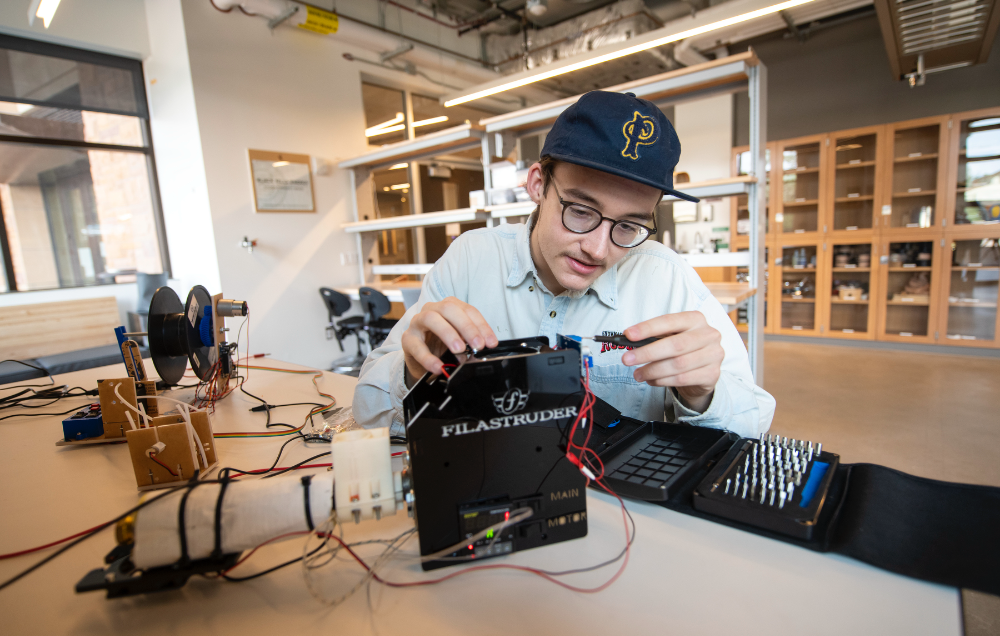Program Managers
MakerUSA trains and places Program Managers (PMs) at partner Innovation Sites. PMs will be full-time MakerUSA staff on 12-18 month, renewable contracts. The model is designed to support multi-year retention of PMs, and thereby create a long-term career pathway. Program Managers are managed by the Innovation Sites, while receiving ongoing training, professional development, and strategy support from MakerUSA. Program Managers may be individuals who are recent graduates, mid-career professionals or individuals transitioning into another career. The PM role is designed to be flexible based on the needs of the Innovation Site and community.
There will be three focus areas for Program Managers. PMs will receive unique training and support from experts in the fields specific to their focus area(s), including from the fields of maker-centered learning, entrepreneurship, ecosystem development and project-management.
PMs and Innovation Sites will continually learn and share with their peers across the country through the MakerUSA Learning Network.
Program Managers, and eventually the students and makers they serve, will have access to the MakerUSA Academy. The Academy will become a professional learning and resource platform with curated courses specific to pathways in maker careers, project management, ecosystem development as well as resources for student makers, such as intellectual property and new business development training.
At scale, MakerUSA Program Managers will become a new national workforce that is exclusively focused on building pathways into making-focused industries and entrepreneurship, and specifically in the communities that have been most marginalized by unequal opportunity.

Program Manager Focus Areas
-
Maker Program Builder
Focus on expanding and/or creating new higher ed-based (or high-ed connected) makerspaces and other maker programming. This could include:
Supporting efforts to make existing makerspaces more inclusive and connected to the community, including through K-12 school partnerships
Designing new maker education programming, including student maker challenges
Connecting local businesses in new ways to a higher ed-based makerspace
-
Student Pathways Builder
Focus on supporting individual college student makers on their workforce entry and/or entrepreneurship pathway. This could include:
Providing guidance to student makers on resources for additional entrepreneurship training and support, including on new business formation, incubator and accelerator programs, intellectual property, college courses, and mentorship programs
Partnering with local employers to create stronger pathways for student makers to local industry, including through apprenticeship programs
Supporting student entrepreneurs in the development and growth of their businesses locally, including navigating from prototype to small-batch manufacturing
-
Innovation Ecosystem Builder
Focus on strengthening partnerships across a community’s maker, K-12, higher ed, entrepreneurship, and/or manufacturing stakeholders. This could include:
Managing a working group among organizations that comprise maker and entrepreneurship ecosystems to better connect resources and career pathways
Increasing the capacity of professional and/or community makerspaces to support their makers on entrepreneurship pathways
Expanding small batch and advanced manufacturing ecosystems’ networks
Building the capacity of public offices to support their local making community

